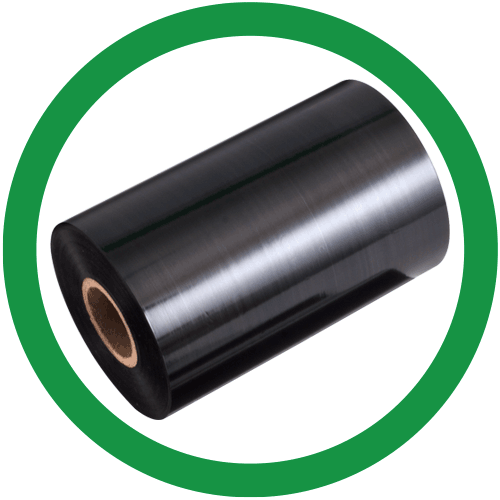Zebra 3x0.55 Rat-Tail RFID Label [Non-Perforated]
| Labels by Printer | Zebra ZE500 RFID Zebra ZT600 RFID |
| Print Technology | Thermal Transfer |
| Material Type | Synthetic Labels |
| Integrated Circuit | NXP UCODE 9 |
| Width (inches) | 3.00 inch |
| Length (inches) | 0.55 inch |
| Core Size | 3.00 inch |
| Outer Diameter | 5 inch OD |
| Format Type | Roll |
| Adhesive Type | Permanent |
| RFID Frequency | UHF |
| Perforation | Non-Perforated |
| Style | Durable Jewelry Labels |
| Color | White |
| Rolls Per Case | 2 |
| RFID Labels Per Roll | 1500 |
| Cost Per RFID Label | $0.13157 |
Product Highlights
Zebra Thermal Transfer Rat Tail RFID Jewelry Label, Polyester, 3 x 0.5469 inch (76.2 x 13.9mm), Z-Ultimate 2000T White, Value Coated, Permanent Adhesive, 3 inch (76.2mm) Core, EOS-200 Inlay, ARC Approved Inlay, UCODE 9 Chip, RFID, 1500 Labels Per Roll, 2 Rolls per Case, Priced per Case

Zebra RFID Labels
A thermal transfer RFID paper label with a permanent acrylic adhesive. This is is suitable for apparel chain management applications, including the labeling of corrugate and plastic packaging materials. These labels can also be used for close coupling.
What is RFID and How Does it Work?
Radio requency identification, RFID, uses radio waves to automatically identify objects. Item data is stored on a microchip attached to an antenna, (called an "RFID transponder" or "RFID tag"). The tag transmits the data to a reader with it passes within range, and the reader can convert the signal to digital information that can be used by a computer for further processing.
How will RFID help my Business?
Radio frequency identification, or RFID, has many benefits:
- Improved accuracy of tracking prduct and loction in the warehouse.
- Reduce manual hand scanning saving labor costs
- Retail shops can manually scan inventory in minutes not hours.
- Unlike barcodes RFID chips can hold multiple fields of information.
- RFID chips can be embedded in plastic for greater durability.
- Warehouse deliveries can be scanned by simply entering the dock.
- Retail shops can reduce product theft substantially.
- Hospitals can increase secutiry of assets and patients.
RFID Important Basics for Chips Inlays and Tags
The metal electronic chip that can be embedded into plastic, label material or other weather proof devices are called Chips, Inlays or Tags.
These chips are basically data collection devices that hold a lot more inforamtion than a typical barcode. Putting information onto the chip is called "Encoding". Special RFID printers can Encode or wrote the information onto the RFID chip. You may also purchase RFID chips with your information already encoded or pre-encoded.
RFID Chips have two basic parts
1. A Microchip - for stroring data
2. An Antenna - for radio wave Reception or Transmission
$394.72 / Case
2 Rolls per Case



![Zebra 3x0.55 Rat-Tail RFID Label [Non-Perforated] 10038478](https://www.barcodefactory.com/images/product/large/10036110.jpg)
![Zebra 3x0.55 Rat-Tail RFID Label [Non-Perforated] Video](/stylesheets/index_videolb/video1.jpg)